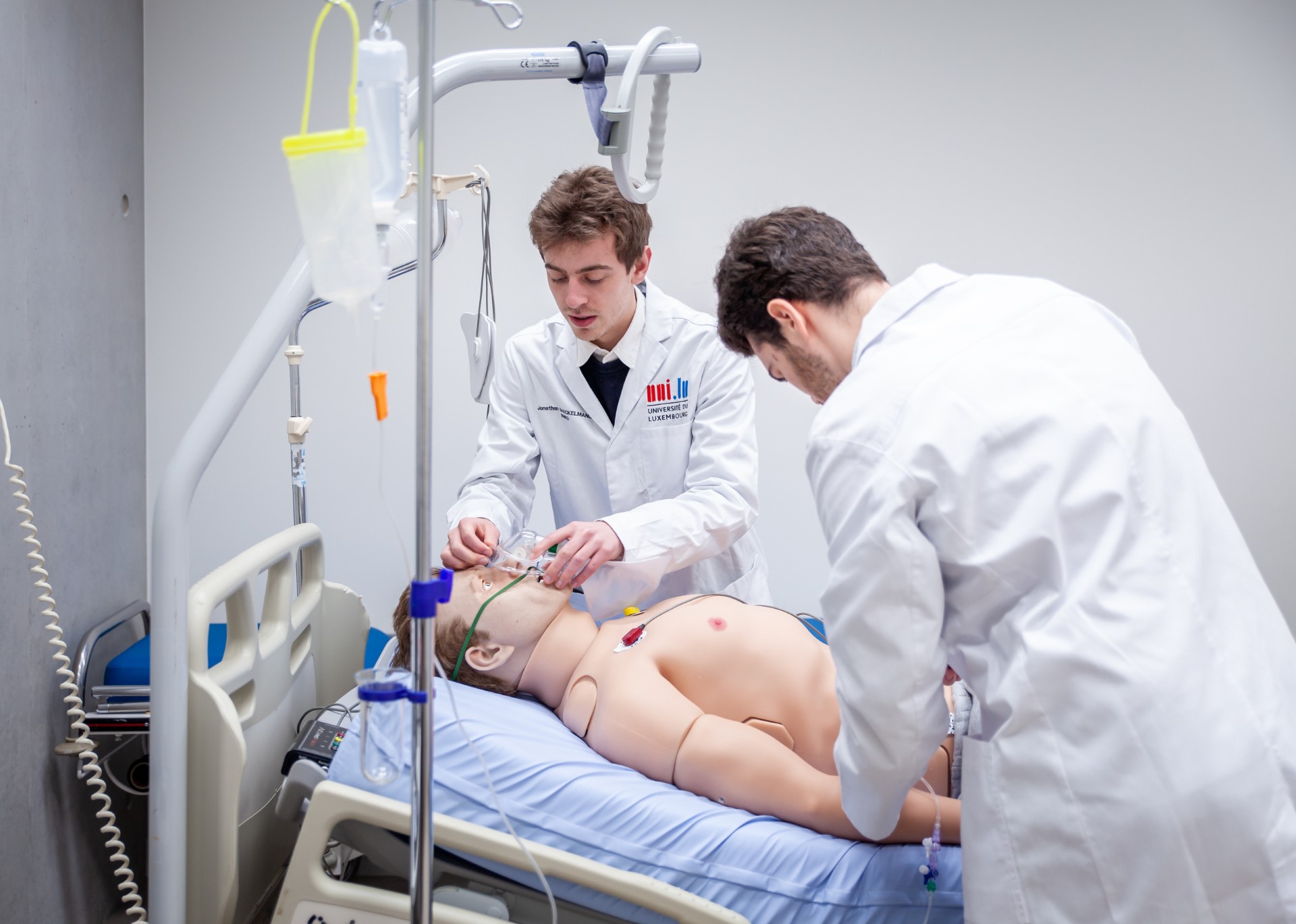Study and career opportunities
The Bachelor’s degree in Midwifery Sciences prepares students for midwifery practice in clinical settings. Students can also continue their studies at the Master’s level.
More info
Download

Skills developed
- Foster the acquisition of in-depth knowledge of the sciences underlying midwifery practice, including midwifery, obstetrics, and gynaecology.
- Foster the acquisition of adequate knowledge of professional ethics and legislation applicable to the practice of the profession.
- Foster the acquisition of knowledge in medicine (biological functions, anatomy, and physiology) and pharmacology in the field of obstetrics and neonatal care, as well as an understanding of the relationships between health status and the physical and social environment of the individual, and their behaviour.
- Promote interprofessional collaboration in specialised care processes to enhance patient safety.
Learning outcomes
Cross-disciplinary Midwifery Practice
- Provide culturally appropriate care, based on evidence, reflecting professional responsibility and the role of the midwife as a key healthcare professional, while valuing cross-cutting skills such as communication, critical thinking, and adaptability.
- Demonstrate leadership within a midwifery team and engage in continuous training to improve knowledge.
Sexual and Reproductive Health and Rights
- Provide comprehensive sexual and reproductive health care, including contraception, pre-conception counselling, and abortion, while respecting individual rights and diverse identities.
- Provide information and support to women, adolescents, families, and communities to promote informed decision-making regarding sexual and reproductive health, incorporating health promotion strategies to empower individuals and improve outcomes.
Prenatal Care
- Conduct comprehensive assessments of women’s and foetuses’ health to ensure well-being and detect complications during pregnancy.
- Offer counselling, health promotion actions, and appropriate care to women with planned or unplanned pregnancies, ensuring prompt interventions or referrals if necessary.
Care During Labour and Delivery
- Assess and manage women during labour by supporting physiological processes and ensuring the safety of both mother and newborn.
- Manage a normal delivery and respond effectively to complications to ensure a safe, respectful, and positive birth experience, using cross-cutting skills such as problem-solving and decision-making under pressure.
Ongoing Care for Women and Newborns
- Conduct postnatal assessments, support breastfeeding, and provide information to promote the well-being of mothers and newborns.
- Detect and manage complications in women and newborns, stabilise emergency situations, and ensure necessary referrals, while offering family planning services and ongoing support, with a focus on the importance of health promotion in postnatal care.
Promotion and Education for Holistic Health
- Empower women, families, and communities through health education, counselling, and advocacy, addressing their physical, emotional, and social needs throughout the reproductive process.
- Promote sustainable practices to improve health outcomes and support the role of the midwife in public health initiatives, while mobilising cross-cutting skills to collaborate effectively in diverse and varied contexts.
- Use clinical research and clinical reasoning knowledge to appropriately apply medical technologies, implement interventions (such as imaging and medications used in obstetric care), and adhere to the latest recommendations/guidelines, with critical analysis to better diagnose pathologies and apply evidence-based medicine (EBM) to optimise care specific to each patient’s clinical situation.